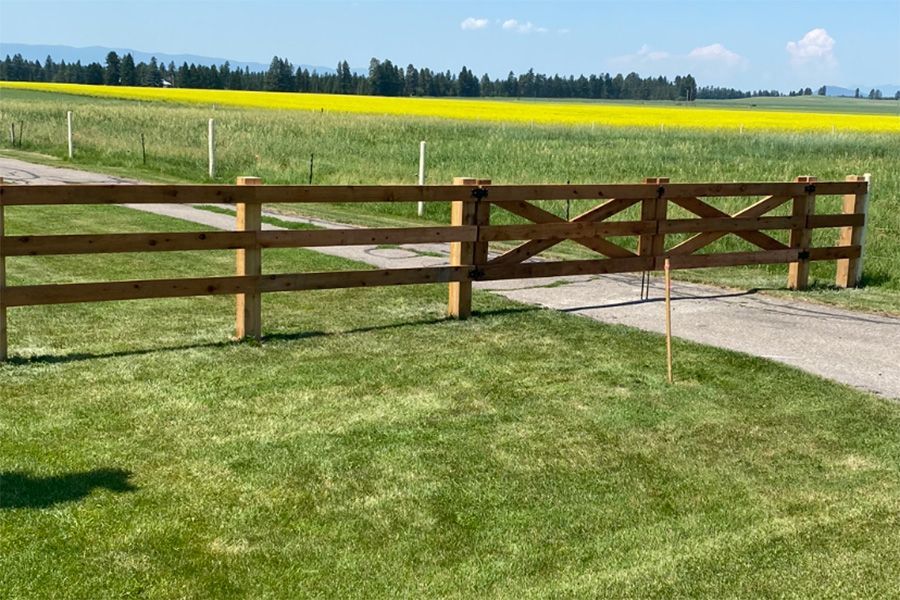Installing continuous panel fencing can be easy—if you steer clear of these common mistakes.
1. Inadequate Site Preparation
Proper site preparation is essential for a smooth installation. Skipping this step can lead to uneven fencing and long-term issues. Common mistakes include:
- Failing to clear debris and vegetation from the site.
- Not leveling the ground properly before installation.
- Ignoring soil testing to ensure stable post placement.
Tip: Take the time to prepare the site thoroughly to avoid costly adjustments later.
2. Incorrect Measurements
Getting the measurements right is essential for a perfect installation. Missteps here can lead to wasted materials and an uneven fence. Key issues are:
- Not measuring the entire perimeter of the fence line.
- Failing to account for gates and access points.
- Misjudging panel spacing or post placement.
Tip: Double-check all measurements and create a detailed plan before starting.
3. Choosing Cheap Materials
Choosing lower-quality materials to save costs might seem tempting, but it often results in higher expenses in the long run due to repairs or replacements. Mistakes include:
- Using untreated or low-grade metal panels prone to rust.
- Choosing subpar hardware that weakens over time.
- Opting for cheaper finishes that don’t withstand harsh weather.
Tip: Invest in high-quality, durable materials for a fence that lasts.

4. Ignoring Local Regulations
Local regulations are crucial when installing a fence. Failing to comply can lead to penalties or the removal of your fence. Some common mistakes are:
- Failing to check zoning laws and property boundaries.
- Skipping permit applications where required.
- Violating height restrictions or setback requirements.
Tip: Consult local authorities or hire a professional familiar with the regulations in your area.
5. Best Practices for Installing Continuous Panel Fencing
Here are a few tips to help you avoid common installation mistakes and ensure a successful project:
- Plan Ahead: Create a detailed installation plan, including measurements and materials.
- Use the Right Tools: Ensure you have all the necessary tools, such as post-hole diggers, levels, and power drills.
- Work with Professionals: If you’re unsure about any step, consult experienced installers to guide you through the process.
- Inspect as You Go: Regularly check your progress to catch errors early and make adjustments as needed.
Conclusion
Avoiding these common mistakes will ensure a smooth installation, resulting in a durable and attractive fence. Need help? Contact Montana Fence for guidance and professional installation services.